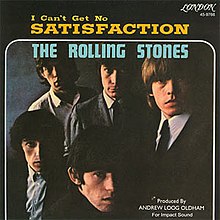
Midnight ramblers: Ronnie Wood, Mick Jagger and Keith Richards of the Rolling Stones at Glastonbury.
In the pre-internet age, the Glastonbury festival was famously a hive of bizarre rumours about what was going on in the outside world. For a period in the early 90s, a story seemed to be passed around every year that Cliff Richard had died, while in 1995, the news that John Redwood was launching a leadership challenge to then-prime minister John Major somehow got mangled into a report that the entire Tory government had resigned en masse.
The rise of the web and the smartphone was supposed to have done for that kind of thing, but this year the spirit of the unlikely Glastonbury rumour seems to be abroad once again, although this time the stories are concerned not with the sad demise of the tennis-loving Peter Pan of Pop, but with a plethora of secret guest appearances. Lady Gaga is supposed to be turning up. Almost nowhere in the festival is safe from an imminent guerilla gig by Daft Punk. And David Bowie, we are earnestly informed, is going to appear on stage with the Rolling Stones, giving rise to the flatly horrifying thought that he and Mick Jagger might favour us with their cover version of Dancing in the Street.
By the time the Rolling Stones arrive, the crowd in front of the Pyramid stage has swelled to 100,000, something you might have predicted had you noted the sheer number of people walking around the site in Stones T-shirts: it's hard to think of another Glastonbury that's been so conclusively overtaken by a solitary headlining act. As U2 discovered a few years back, parachuting a hugely successful band in to headline Glastonbury doesn't always work, something of which Jagger at least appears aware. For someone with a reputation for lofty diffidence, he seems to have been on a charm offensive for weeks: no sooner had their headline slot been announced than he took to Twitter to claim, a little implausibly, that he was going to stay on site in a yurt. The charm offensive carries over into their set. Just as he joked about the cost of the seats at last November's O2 performance, he jokes about Glastonbury's dogged pursuit of the band over the years: "So, they finally asked us."
If mention of his actual sleeping arrangements is conspicuous by its absence, Jagger mentions having spent the previous night at the festival: "I went to Shangri-La!" he says, sounding as ever, exactly like a man doing an impersonation of Mick Jagger. "I saw the Arctic Monkeys." Indeed, so keen is he to underline his awareness that this show is more than just another stop off on the Stones' 50th Anniversary Tour, he has reworked the song Factory Girl for the occasion: Glastonbury Girl makes reference to wet wipes, inhaling nitrous oxide, camping and ecstasy.
What's striking about the other songs they perform is how thrillingly ramshackle the Stones sound. In contrast to most of their stadium-filling peers, you can hear the imperfections, the occasional fluffed notes. They sound like a real band, rather than bored multimillionaires going through the motions, which adds a genuine edge to the big hits: Wild Horses should be dulled by overfamiliarity, but it packs an emotional punch. It's a sense heightened by their evident delight at having former guitarist Mick Taylor back on stage with them – a delight not shared entirely by the audience, which thins out a bit during the lengthy versions of You Got the Silver and Midnight Rambler – and the set's occasional surprises: they perform a fantastic version of 2,000 Light Years From Home, from the most reviled of their 60s albums, the psychedelic folly Their Satanic Majesties Request.
As they play Sympathy for the Devil, the scrap-metal phoenix at the top of the Pyramid stage begins to slowly rise up and belch out fire. In the crowd, people are letting off flares and red smoke billows around. It's incredibly exciting: one of those much-vaunted Glastonbury moments.



No comments:
Post a Comment